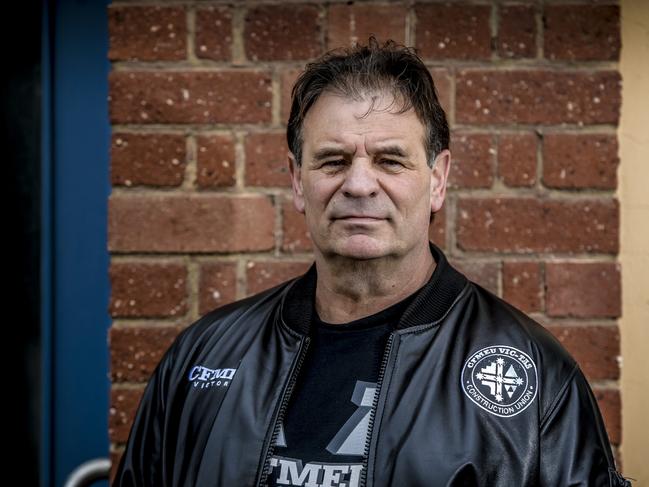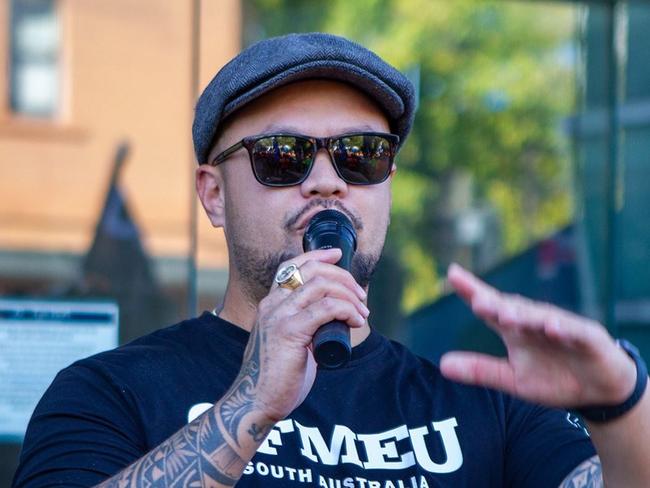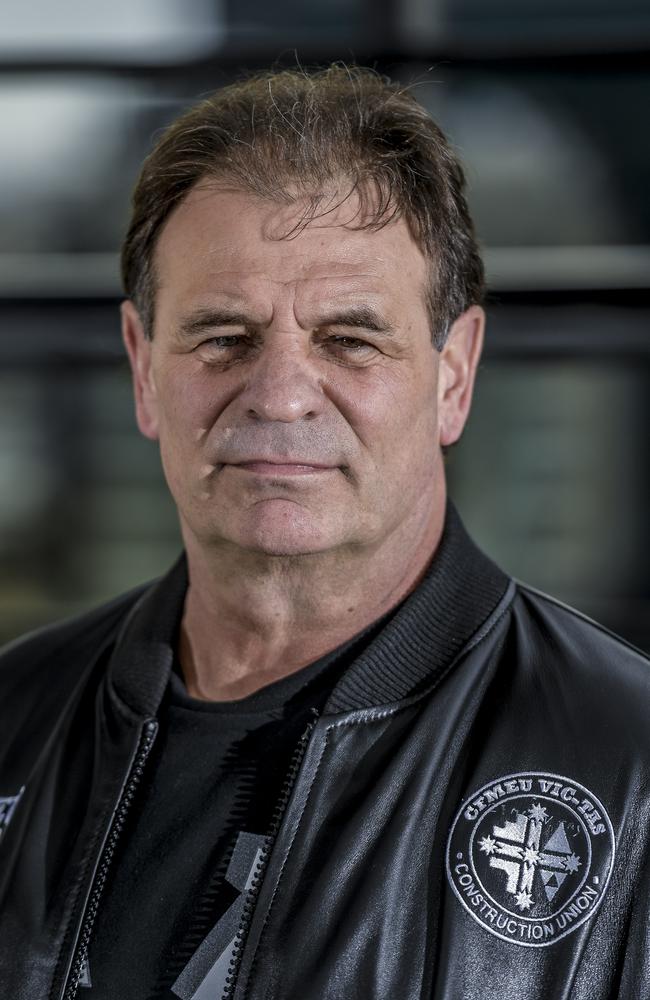John Setka’s takeover of South Australian CFMEU branch investigated as part of bombshell new probe
A bombshell new investigation into union spending, kickbacks, and underworld links will examine whether Victoria’s “cycle of lawlessness” infected the South Australian branch of the CFMEU.
Victoria
Don't miss out on the headlines from Victoria. Followed categories will be added to My News.
John Setka’s takeover of the CFMEU’s South Australian branch in 2022 is being probed as part of a bombshell new investigation into union spending, kickbacks, and underworld links.
Investigators at the scandal-plagued construction union, which was put under the control of administrator Mark Irving KC in July, were asked to look into the South Australian branch following a report showing Victoria’s “cycle of lawlessness” may have infected other states.

Terms of reference, obtained by the Herald Sun, show the new probe will focus on former South Australian boss Marcus Pare and whether he received benefits in return for enterprise agreements, had links to organised crime, and granted himself pay rises.
They also delve into Mr Setka’s role at the South Australian branch following his takeover as divisional secretary – effectively putting him in charge of the Tasmanian, Victorian and South Australian branches – in August, 2022.
The terms of reference say that the branch had a surplus in 2021, but accumulated losses of $1.6m by 2024 and went from a “viable, independent Divisional Branch to one that was functionally insolvent”.
Investigators will probe whether Mr Pare’s use of credit cards breached union rules and were part of an agreement with Mr Setka, as well as whether flights paid for by the union were for “any unauthorised purpose”.
They will also examine a property he owned and whether benefits were received in return for enterprise agreements, and even how Mr Pare’s mother came to be employed by a labour hire company.
Mr Pare was removed as assistant secretary of the branch when administrators were installed in August, but has denied any wrongdoing.
In a statement in July he said there was “no evidence of criminality in our branch”.

Mr Setka resigned from the CFMEU in July when allegations in Victoria – where he was state secretary – surfaced, hitting out what he said were “malicious attacks”.
The Herald Sun attempted to contact Mr Setka in relation to the terms of reference.
The terms of reference for the new investigation hone in on the South Australian branch’s “Pare-Setka period”.
Records show that during that period Mr Setka, who once described South Australian comrades as “weak c****”, did not attend committee meetings.
They also show that the year before his takeover in South Australia, the branch had a surplus of $13,265, but that in the 2024 financial year expenses had ballooned to $944,190 more than net income, and accumulated losses and net equity was $1.6m.
Mr Pare’s union credit card spending will be assessed, including whether it was part of “an arrangement with Mr Setka as the nominal Divisional Branch Secretary about the expenditure” and whether it met union rules.
Mr Pare’s salary is also under the microscope, including whether he authorised his own pay rise and car purchase or “had an arrangement with Mr Setka”, and whether either situation was disclosed to the union’s branch committee of management.

It will also examine his role in enterprise agreements, which were used by the CFMEU to dictate who got work on major work sites.
The administrator has been asked to investigate if Mr Pare “improperly used his position to gain a financial advantage” for himself or relatives, including by “facilitating the entry into enterprise agreements on compromised terms with employers in exchange for such benefits”.
The Albanese Government called in Mr Irving to clean up the union following reports the Victorian branch was coercing builders and receiving kickbacks for favourable workplace deals used to secure work on taxpayer-funded sites.
An initial report into the claims by corruption-busting barrister Geoffrey Watson, found the CFMEU in Victoria had lost control and descended into a “cycle of lawlessness”, and had been infiltrated by bikies and organised crime figures.
Mr Irving established a whistleblower hotline and new integrity unit in the wake of the findings, as well as an investigation into allegations in NSW, Queensland, and South Australia.
Read related topics:CFMEU



